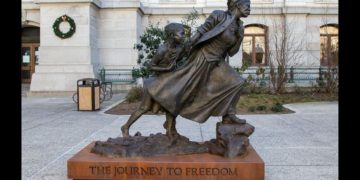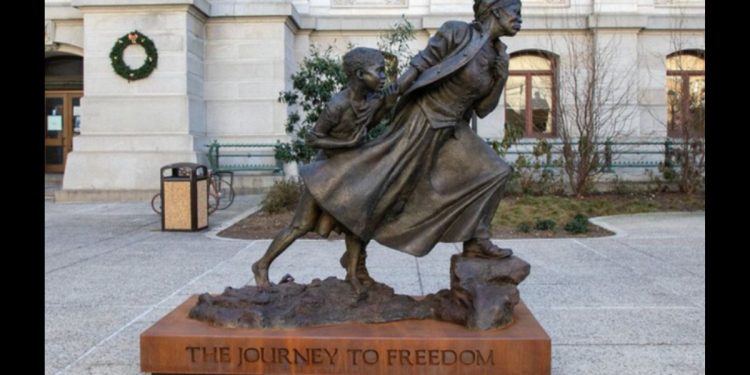After a white sculptor’s work depicting Harriet Tubman received rave reviews, Philadelphia hired him to do another piece that would be on permanent display.
But after complaints that the artist should not be white, Wesley Wofford was given the boot, according to The New York Times, which noted that the five designs currently being considered instead of his are all the works of black artists.
“Art is supposed to be a universal language that transcends gender, race and culture,” Wofford said.
In 2017, Wofford designed a statue of Tubman after getting a private commission. He made a traveling version of the statue called “Journey to Freedom.” The statue made it to 17 cities and was in Philadelphia from January to March 2022.
Wesley Wofford’s “Harriet Tubman – The Journey to Freedom”, originally displayed at the Equal Justice Initiative Legacy Pavilion in Montgomery, Alabama, in 2020.
(pic is from Philadelphia) pic.twitter.com/sbBo6q5GoE
— Trip Micali (@trip_micali) January 15, 2023
The statue was a hit, noted Kelly Lee, executive director of the city’s Office of Arts, Culture and the Creative Economy.
Unable to buy the traveling statue, the city wanted to pay Wofford $500,000 to design a permanent Tubman statue.
Then came public meetings where the choice of a white man was denounced.
“As an artist, it’s hurtful, and it is traumatizing,” textile artist Dee Jones said in June 2022, according to Art Forum. “If it was an open call and Wesley was chosen, it would be fine. But because the process wasn’t open, that’s the big issue.”
Wofford said he was marginalized.
“I didn’t have much of a voice,” he said, according to the Times. “No one wanted to hear from me.”
Some of Tubman’s descendants support him, putting out a statement that said, “Harriet Tubman worked with people of all races who were like-minded, and Mr. Wofford is like-minded. Harriet Tubman stood for people of all races.”
But in the end, Wofford’s commission was revoked, and in August 2022, the city issued an open call.
Wofford did not enter but said he would provide a larger version of “Journey to Freedom” at cost if no other option worked.
Lee insisted race was not a criterion for making it to the semifinals. The public weighed in voting that ended Friday. The final decision will come in October.
Tanda Francis, one of the finalists, said it was only right a black person gets the commission.
“She’s an ancestor,” Francis said. “We should be telling our story.”
Wofford told CNN that race should not be an exclusionary factor.
“The task ahead of us regarding under representation in public spaces is so huge that every living, working artist needs to be working on it. It is not that only black artists should be sculpting black subjects. I think that we all need to get there together,” he said.
This article appeared originally on The Western Journal.

























 Continue with Google
Continue with Google